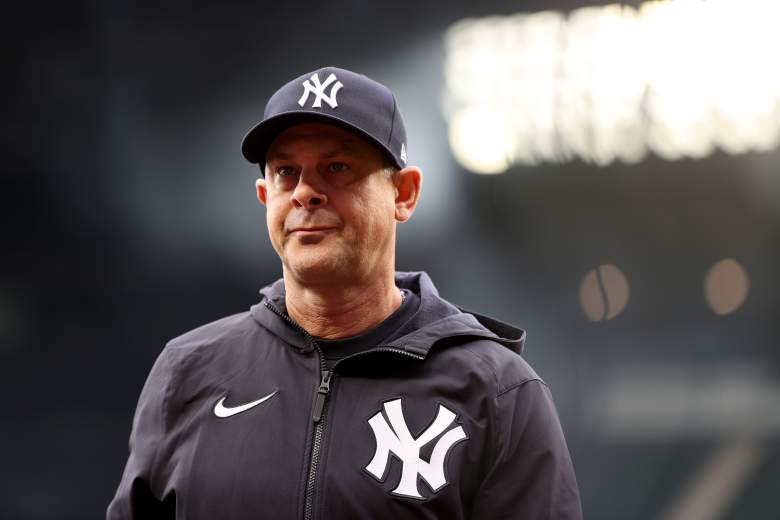Jerry Butler, Impressions Singer and Chicago Politician, Dies at 85
Chicago soul giant Jerry Butler, a singer with Curtis Mayfield's Impressions and a Windy City politician, has died. He was 85.

Chicago soul giant Jerry Butler, who succeeded early hits as lead singer of the keystone R&B group Impressions and a notable solo career with years as a Windy City politician, has died, according to the Chicago Sun TImes. No cause of death was announced, although he had suffered from Parkinson’s disease; he was 85.
Alongside singer-guitarist Curtis Mayfield, with whom he had sung in the Northern Jubilee Gospel Singers, 19-year-old Butler broke onto the charts in 1958 with the doo-wop-inflected ballad “For Your Precious Love,” by the act initially billed as Jerry Butler and the Impressions. Rolling Stone critic Joe McEwen later wrote, “The song can almost be considered the first soul record.”
Following one more top-30 single with the group, Butler broke away on his own. His first solo hit, “He Will Break Your Heart,” co-written with Mayfield (with whom he continued to work following his split with the group) and Vee-Jay Records exec Calvin Carter, spent seven weeks at No. 1 on the national R&B charts and reached No. 7 on the U.S. pop charts in 1960.
Popular on Variety
Boasting a strong baritone that reached into the upper register to powerful effect, the suave, nattily attired vocalist was dubbed “the Iceman” in 1961 by WDAS Philadelphia DJ George Woods when he retained his cool and kept singing after the PA system failed at a local concert.
Butler notched another five top-10 hits for Vee-Jay through 1966; one of them, a remake of the Everly Brothers smash “Let It Be Me” with duet partner Betty Everett, also claimed the R&B pinnacle. He also co-wrote a notable 1965 hit with rising Memphis soul star Otis Redding: “I’ve Been Loving You Too Long,” which the pair penned after a shared concert date in Buffalo, NY.
After Vee-Jay filed for bankruptcy protection in 1966, the singer moved to Mercury Records, then a Chicago-based independent label, where he experienced his golden era. The young Philly-based production team of Kenny Gamble and Leon Huff were instrumental during this epoch.
In the notes to a 2001 reissue of “The Ice Man Cometh” (a No. 29 pop album in 1968) and “Ice on Ice” (No. 41 in 1969), the two albums he made with the duo, Butler recalled that at a Philadelphia club, “Kenny came up and told me he and Leon had cut the Intruders’ ‘Cowboys to Girls,’ and I said, ‘Man, I love your sound.’” The singer told Mercury president Irwin Steinberg, “I think these kids have a hipper sound and I want to work with them.”
Beginning with the No. 4 R&B entry “Never Give You Up,” the Butler-Gamble-Huff consortium logged six consecutive soul top-10 hits, including the sleekly crafted No. 1 singles “Hey, Western Union Man” (also No. 16 pop) and the vocalist’s signature song “Only the Strong Survive” (No. 4 pop).
After Gamble and Huff decamped from Mercury to start up their own hit factory, Philadelphia International Records, Butler’s sales fortunes began to wane. Apart from the rare solo top-10 R&B single, his biggest hits of the ‘70s were duets with Brenda Lee Eager, “Ain’t Understanding Mellow” (No. 3, 1971) and a remake of the Carpenters’ “(They Long to Be) Close to You” (No. 6, 1972). His last top-10 hit, “I Wanna Do It to You” (No. 7, 1977), came during a brief association with Motown; a stint at Philadelphia International failed to recapture the magic of past collaborations.
By the early ‘80s, Butler was running a Chicago beer distributorship, but his interest turned to politics after Harold Washington was elected as the city’s first Black mayor in 1983. Chicago alderman (and former Black Panther Party officer) Bobby Rush encouraged him to run for the Cook County Board of Commissioners. Elected in 1986, he held the post until his retirement in 2018.
Approached by the Chicago Reader’s Ted Cox in 2011 to discuss a profile that would focus on his singing career, Butler replied drily, “Music, huh? Thought I’d covered that up.”
Not entirely: In 1991, Jerry Butler was inducted into the Rock and Roll Hall of Fame as a member of the Impressions.
He was born Dec. 8, 1939, in Sunflower, Miss., and moved to Chicago with his family three years later. He grew up in the Cabrini-Green housing projects on Chicago’s Near North Side. Though he envisioned a career as a cook or chef when he was young, he became involved in gospel music, with Mayfield, as a member of the Traveling Souls Spiritualist Church.
Following a brief tenure with the vocal act the Quails, he joined another “bird group,” the Roosters, whose members included Sam Gooden and sibling Arthur and Richard Brooks. He brought Mayfield in as singer-guitarist, and the quintet was given a new handle by their manager Eddie Thomas.
In “Move On Up,” Thomas told author Aaron Cohen, “I said, ‘You guys got a beautiful sound…When I met you, I was very impressed with your sound, so why not change your name to the Impressions?’ Everybody was doing doo-wops, but they had something like a musical choir in the background.”
Butler told writer Cox that their fittingly impressionistic bow “For Your Precious Love” was an attempt to break with the musical past. “We were trying to find a new sound. We didn’t want to be doo-wop. We wanted to have a different and lasting impression. There’s no hook. There’s nothing to sing along with. It’s a poem set to music.”
Butler’s songwriting stood him in good stead through his solo work at Vee-Jay and during his association with Gamble and Huff, but after the songwriter’s exit from their association with Mercury, he took on a more entrepreneurial interest in his career, founding the Butler Songwriters Workshop in January 1970, with $55,000 in seed money from Chappell Music.
In Robert Pruter’s classic history “Chicago Soul,” he confesses, “The idea for the workshop came out of self-interest. I had obligations to do 30 sides a year with Mercury…and I didn’t know what to do. Tin Pan Alley, where you used to be able to get a couple of songs, has died for all intent and purpose….I knew there were a number of young cats in Chicago with a lot of songwriting talent.”
Besides nurturing the writing careers of Terry Callier and the team of Chuck Jackson (brother of Rev. Jesse Jackson) and Marvin Yancy, Jr. (the future husband of Natalie Cole), Butler also formed a label, a production company, and an independent record label at around the same time.
However, as his career slowed in the early ‘80s, the onetime singing star turned his attention to politics. Fellow Cook County Commissioner Larry Suffredin told the Reader, “I think [he] got into [politics] for only one reason—he felt that he had a voice because of all the blessings he’d been given, and that he could use it for other people.” He added, “I know a meeting is going well because he’ll hum to himself. The moment he stops humming, it’s like, ‘Oh my God, something’s about to happen.’”
Butler never completely abandoned music: He continued to perform occasionally into the new millennium, hosted oldies R&B specials for PBS and chaired the Rhythm and Blues Foundation’s board. He published his autobiography, “Only the Strong Survive: Memoirs of a Soul Survivor,” in 2000.
Butler’s wife Annette, to whom he was married for 60 years, died at 81 in 2019; she had worked as his backup singer before they were wed. He is survived by his sons Randy and Anthony.






















